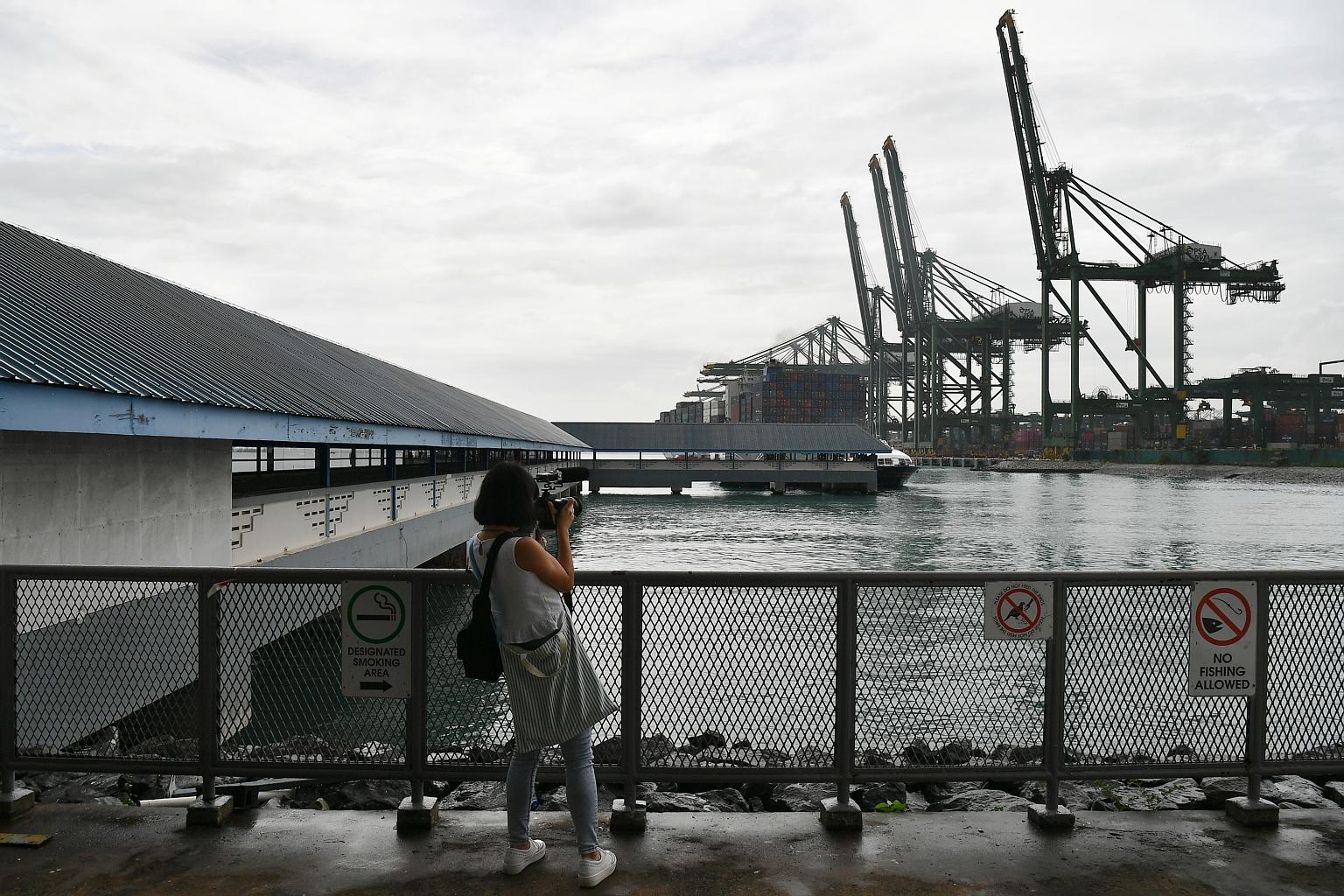Parliament: Cautious optimism for Singapore economy but global risks remain
US-China ties biggest uncertainty; 'phase one' deal positive first step, says Chan Chun Sing
Sign up now: Get ST's newsletters delivered to your inbox

Last year was a volatile year for the global economy, and Singapore, as a small and open economy, was affected by macroeconomic conditions. Another global uncertainty which impacts Singapore is Brexit, but the immediate impact on Singapore and its companies is likely to be limited, said Trade and Industry Minister Chan Chun Sing.
ST PHOTO: LIM YAOHUI
Singapore is cautiously optimistic about its economic growth prospects in the year ahead, but several uncertainties remain in the global economy, Trade and Industry Minister Chan Chun Sing told Parliament yesterday.
The biggest uncertainty is the relationship between the United States and China, he said, noting that it is the most important bilateral relationship for both, and the entire world.
The recent announcement of "phase one" of the US-China trade deal and the averting of further trade tensions is positive for all, and Singapore hopes this is the first step to put the relationship between both countries back on a stronger footing, Mr Chan added.
He was responding to Mr Saktiandi Supaat (Bishan-Toa Payoh GRC), who asked about the impact of the "phase one" deal on Singapore's economy, as well as the impact of declining local exports on businesses and employees here.
Brexit is another global uncertainty which impacts Singapore, as the United Kingdom and the European Union are collectively the Republic's third-largest trading partner in goods and its biggest trading partner in services, Mr Chan said.
However, the immediate impact of Brexit on Singapore and its companies is likely to be limited, he added.
Mr Chan noted that the UK will be functionally treated as an EU member state and remain a party to the EU's international agreements, including the EU-Singapore Free Trade Agreement (FTA), which went into force last November, until at least the end of this year.
But this may change depending on what the British Parliament decides in the coming weeks, and what happens after 2020 has yet to be determined, he added, noting that Singapore is working with Britain on an economic agreement to maintain continuity in its economic relations after the EU-Singapore FTA no longer applies to Britain.
Mr Chan also said that US-China tensions and Brexit are manifestations of a deeper unhappiness over the inequitable distribution of gains from globalisation, and the multilateral trading system is under significant stress.
Last year was a volatile year for the global economy, and Singapore, as a small and open economy, was affected by macroeconomic conditions. Advance estimates last Thursday showed Singapore's economy grew by 0.7 per cent last year, slower than 2018's 3.1 per cent expansion.
But Mr Chan said it is not all gloom, as areas like the digital economy present an opportunity, and Asia remains a bright spot, with growth estimated at 5.1 per cent.
The Ministry of Trade and Industry expects Singapore's economic growth to pick up between 0.5 per cent and 2.5 per cent on the back of a slight uptick in global economic growth and gradual recovery in the global electronics cycle.
The Government has put in place strategies to expand Singapore's economy and create jobs, Mr Chan added. These include strengthening Singapore's fundamentals to distinguish itself, which the international community has recognised, he said, adding that the Republic attracted more than $8 billion of investment commitments in high value-added sectors such as electronics, aerospace and pharmaceuticals last year.
Singapore companies and workers are also getting help to internationalise, Mr Chan added. Between January and September last year, about 800 companies received grant support for expansion into overseas markets through the Market Readiness Assistance scheme.
In the same period, around 1,700 companies got support to grow their businesses - both at home and abroad - through capability development, market access and manpower development for internationalisation.
The Government is also pursuing new growth opportunities by developing new industry niches in areas such as additive manufacturing, robotics and sensors. Mr Chan said these build on existing strengths in sectors such as electronics and precision engineering, and will enhance Singapore's position in global value chains.


